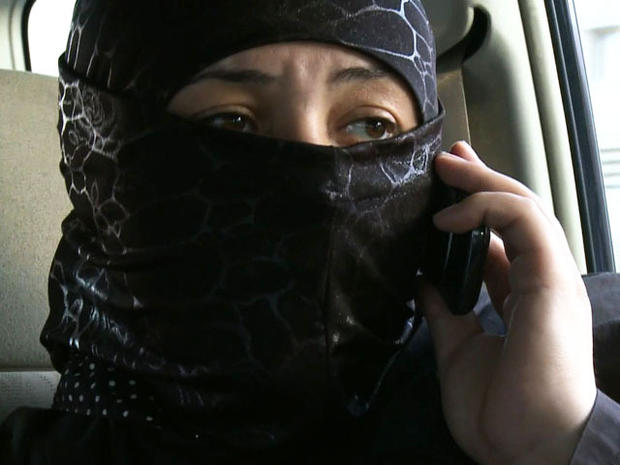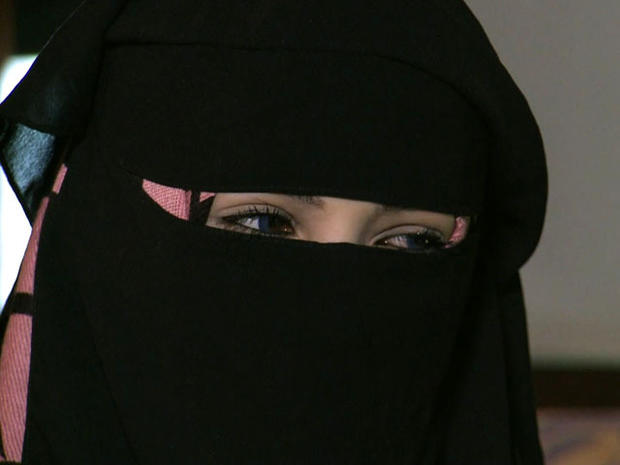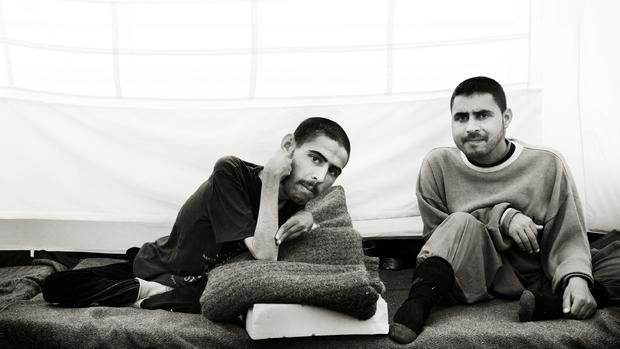Young brides' dreams crushed amid Syrian civil war
(CBS News) ZAATARI REFUGEE CAMP, Jordan -- It is impossible for most of us to understand what life is like for the more than half-million Syrian refugees living in Jordan. Most have fled the violence and chaos of Syria's civil war only to themselves trapped in a life of grinding poverty -- unable to work legally in Jordan and unable to return to their homeland.
Roughly 175,000 Syrian refugees live in the Zaatari refugee camp, a sprawling mass of white tents pitched in the middle of the desert. There is no running water and limited food. Riots and protests break out regularly.
After just a few minutes here, it is easy to see how the dust and squalor erode one's sense of optimism and hope. Many of the women don't feel safe. They told me that it is dangerous to go to the bathroom alone at night. Some families have dug little ditches next to their tents so that their daughters don't find themselves in that position.
It is against this backdrop of desperation, fear and poverty that some families are now selling their daughters into early marriage. In many Middle Eastern countries it is the custom for the groom to pay the family of the bride.
Marrying off a daughter can help relieve the financial burden on a family while simultaneously affording her some protection and security -- the logic being that a girl is much less likely to be assaulted if she is married.
But where you have desperation, you have exploitation. Men are now coming from across the Arab world, particularly from the Gulf, to find themselves young Syrian brides at bargain prices.
Many of them pose as donors to gain access into the camps. They come with bags of cash, looking for families to help, particularly families with young, unmarried daughters. Often, they are in their 60s or 70s.
We spent time with Um Majed, who calls herself a marriage broker, but who, in reality, is a madam.
"The grooms come from the Gulf, from Saudi Arabia, from abroad," she said. "They come and they ask for girls, or they donate money. They call us and they tell us we want to donate money to families who deserve. So they ask for the names of the families, they ask the number of people per family, and they choose which family they want to donate to."
For every match Um Majed makes, she gets a cut. Young virgins fetch the highest prices -- as much as $5,000. A widow might get $2,000. Um Majed does not appear to feel remorse for her work, viewing it is a means of survival. The humanity of the Syrian people is being worn away but their suffering, she told me.
Photographer and triple-amputee Giles Duley meets Syria refugees trapped by their injuries
Tensions rise as Syrian refugees flood Jordan
Syrian refugees fight for survival in "Dead Cities"
"Minakool ba'adna," she said, using an Arabic phrase that literally means we are "eating each other," but which more loosely means we are "turning against each other" or "fighting each other."
"It's the parents who feel it like a knife to their heart," she said. "But it doesn't compare to the shelling and the bombing and the airplanes bombing and seeing people dying in front of you. So what can they do? We are in a state of war."
The worst part of these marriages is not the age gap but the fact that many of them are a sham -- another way of paying for sex. Sometimes they last only weeks.
Below: Refugee camps strain resources on Jordan-Syria border.
We met one girl, 17-year-old Aya, who was sold into marriage with a 70-year-old Saudi Arabian for $3,500. The man already had two wives and 11 children.
Aya's mother wept as her daughter talked to us about the month they spent together. He rarely let her contact her family and often forced her to share his bed even though she was not in love with him. After a month, he suddenly left and returned to Saudi Arabia.
Aya has not heard from him since, but he has not divorced her which means that Aya is living in a no-man's land. She cannot move on with her life, and in the eyes of many in the Arab world she is now tainted goods.
"All I want is for him to give me a divorce and to be able to return to Syria. And for Syria to go back to the way it was," Aya said. "This is my only dream."
A dream that, like so many others here, has been crushed by the cruel realities of war.


